Carbocation Rearrangement
Step by step video solution for Carbocation Rearrangement by Chemistry experts to help you in doubts & scoring excellent marks in Class 12 exams.
Updated on:21/07/2023Similar Questions
Reaction Intermediates|| Carbocation|| Stability OF Carbocation|| Rearrangement OF Carbocation (Hydride, Alkyl and Phenyl shift Reaction)
View SolutionStatement-1: Carbocationic rearrangement is known as electrophilic rearrangement
and
Statement-2: Carbocations are stabilized by both hyperconjugation and +I effect.
View Solution
Knowledge Check
Following two question have assertion followed by the reason. Answer them according to the following options
Assertion Friedel Craf't alkylation of benzene with n-propyl chloride, fail to produce propyl benzene.
Reason Carbocation rearrangement produces rearrangedd isopropyl benzene as major product.ABoth assertation and reason are correct and reason is the correct explanation of the assertation.BBoth assertation and reason are correct bit reason is not the correct explanation of assertation.CAssertion is correct but reason is incorrect.DAssertion is incorrect but reason is incorrect.The following transformation involves a carbocation rearrangement. The carbocation is generated by potonation of the hydroxyl group by the lose of water. Which bond has to migrate in the carbocation to yield the product indicated (after the deprotonation) ?
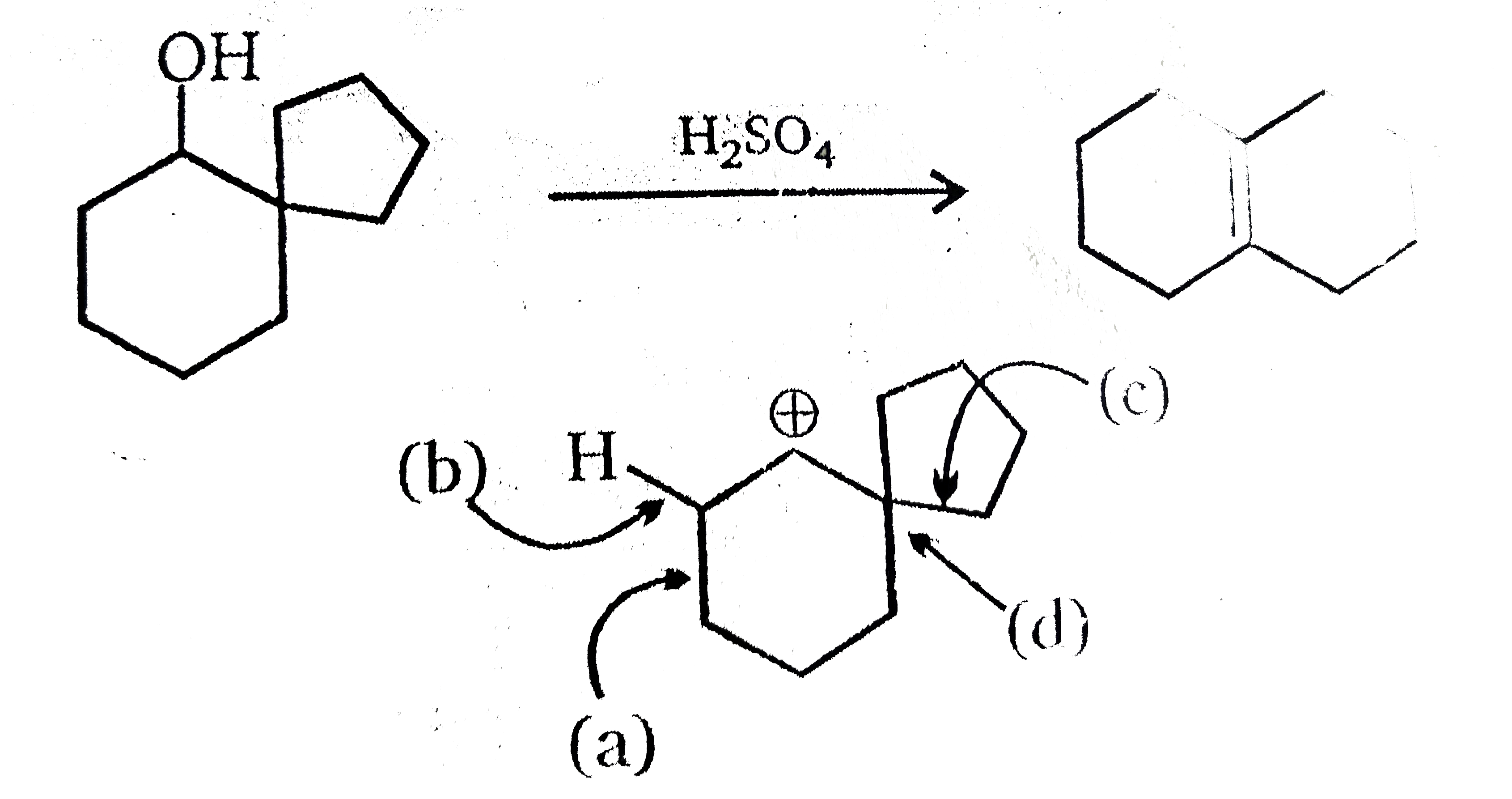 AaBbCcDd
AaBbCcDdWhenever an intermediate carbocation is formed in reaction it may rearranges.
Only those carbocation will rearrange which can produce more stable species . It can be done either by :
(i) Shifting of H, alkyl , aryl, bond (1,2-shifting )
(ii) Ring expansion
(iii) Ring contraction
In which of the following carbocation rearrangement will not take place ?A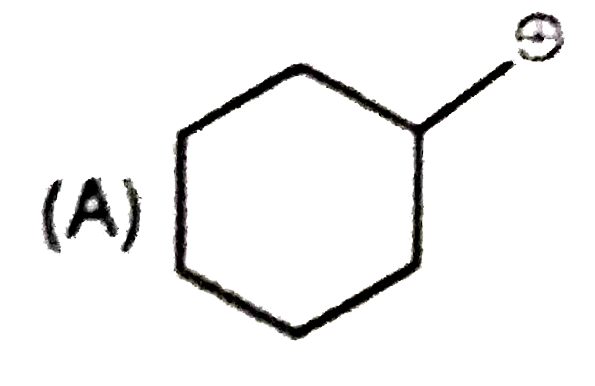 B
B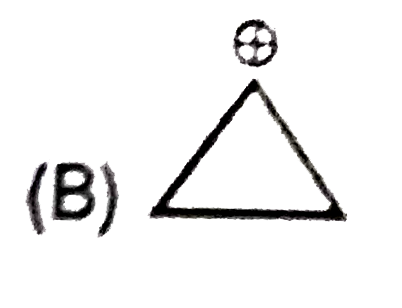 C
C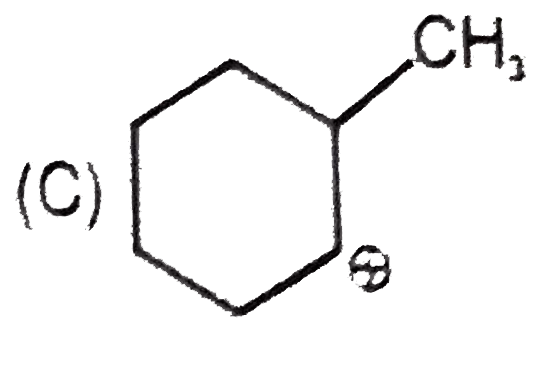 D
D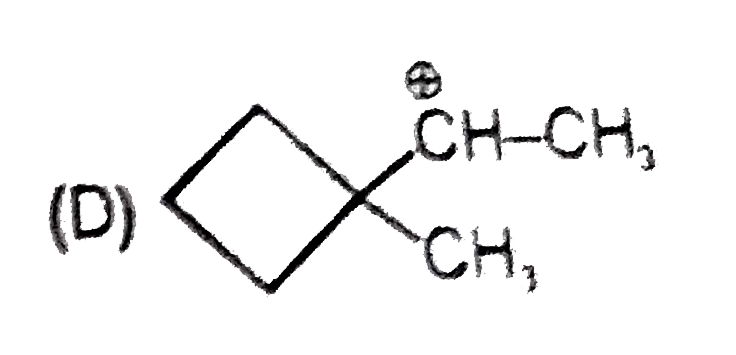
Electrophilic Addition Reaction || Rearrangement OF Carbocation
View SolutionVladimir Markovnikov rule:
Alkenes undergo electrophilic addition reactions. It is triggered by the acid acting as a electrophile toward π-electrons of the double bond.
Markovnikov's rule states that when an unsymmetrically substituted alkene reacts with a hydrogen halide, the hydrogen atom adds to the carbon that has the greater number of hydrogen, e.g.,
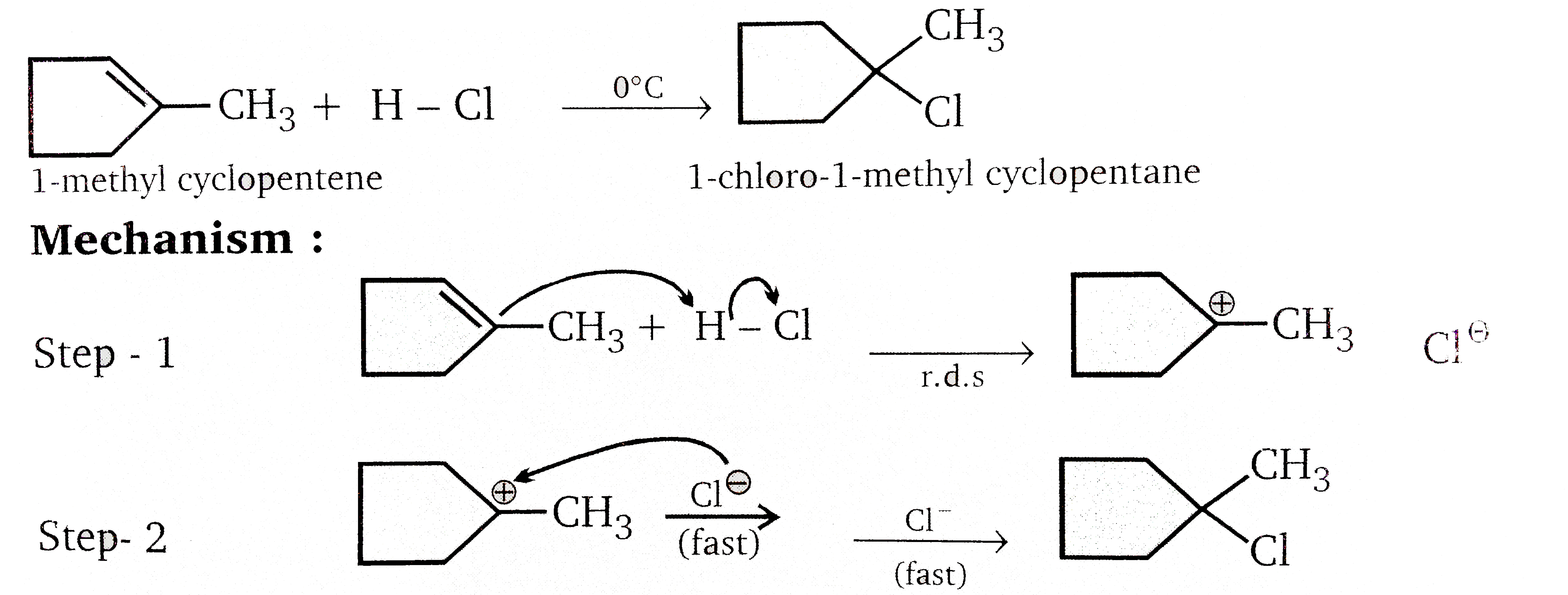
In which of following reactions, carbocation rearrangement is possible?
View SolutionCarbocation are
View SolutionThe less stable carbocation rearranges to more stable carbocation ion. During this rearrangement, the migrating atom or group leaves as a
View SolutionIn which of the following cations rearrangement takes place?
View Solution
